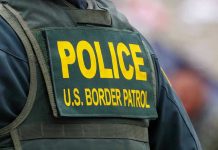
For the first time in years, Washington, D.C. has gone nearly two weeks without a single homicide—thanks to a federal law-and-order crackdown that’s ignited fierce debate over the balance between safety and local autonomy.
Story Snapshot
- President Trump’s federal takeover of D.C. policing led to 13 consecutive days without homicides, a rare achievement in the city’s recent history.
- Black residents, who comprise 96% of D.C.’s murder victims, were the primary beneficiaries of this dramatic decline in killings.
- The intervention has triggered controversy over constitutional home rule, civil liberties, and the future of local criminal justice reforms.
- Supporters highlight the immediate public safety gains, while critics warn of government overreach and threats to local self-governance.
Trump’s Federal Crackdown Delivers Rare Public Safety Streak
In August 2025, President Trump announced a historic federal intervention in Washington, D.C., seizing control of the Metropolitan Police Department and deploying the National Guard in response to rising violence and a viral carjacking incident. Within days of the federal takeover, the city saw a dramatic shift: thirteen consecutive days without a single homicide, a feat nearly unprecedented in modern D.C. This intervention was framed by the administration as necessary to confront decades of failed local policies and restore safety to the nation’s capital.
Attorney General Pam Bondi, newly appointed to oversee the MPD under federal authority, reported nearly 400 arrests and the seizure of 21 illegal firearms during the crackdown period. Law enforcement officials credited the National Guard’s visible presence and aggressive policing tactics for the sudden halt in killings. The administration emphasized that Black residents—who account for the overwhelming majority of murder victims in D.C.—were the direct beneficiaries of this homicide-free period. Trump declared “Liberation Day in D.C.,” underscoring his commitment to law-and-order and positioning the crackdown as a victory for communities most affected by violent crime.
Deep Divides Over Autonomy, Civil Rights, and Precedent
The federalization of D.C. policing, unprecedented under the Home Rule Act, immediately fueled controversy. Local leaders, including the mayor and city council, argued that the intervention undermined constitutional principles of self-governance and rolled back years of locally enacted criminal justice reforms such as cashless bail and conviction sealing. Civil rights groups raised alarms about possible over-policing and the chilling effect on community trust, citing the risk of eroding both civil liberties and the city’s hard-won autonomy. Legal challenges swiftly emerged, raising questions about the lasting legality of federal control.
While supporters in Congress and law enforcement touted the rapid reduction in violence, critics cautioned that the intervention may set a dangerous precedent for federal overreach into local affairs. Policy analysts pointed out that D.C.’s crime rates were already declining before the takeover, suggesting the sustainability and necessity of such a sweeping crackdown remain uncertain. Despite immediate public safety gains, the long-term impact on community relations, policing standards, and the broader debate over criminal justice reform is far from settled.
Impact on Black Communities and the Broader Debate
For D.C.’s Black residents, who have historically faced disproportionate rates of violent crime, the drop in homicides delivered immediate relief but also heightened scrutiny. Community members welcomed the rare calm but expressed concern about aggressive policing and the risk of civil rights violations. The intervention’s focus on public safety resonated with many frustrated by years of unchecked violence, but also stirred anxiety about potential profiling and the erosion of local input in neighborhood policing policies. As debate continues, the future of D.C. governance and national policing standards hangs in the balance.
Trump's DC crime crackdown overwhelmingly benefits Black Americans as homicides hit zero #Crimerates #DonaldTrump #Racialinjusticehttps://t.co/adcDCDPFZ5
— Mechelle A, DR. Stallings (@MechelleSt5800) September 8, 2025
As federal control persists and legal battles unfold, the D.C. case stands as a flashpoint in the national conversation: Should decisive federal action override local autonomy when public safety is at stake, or does it threaten the very principles of constitutional self-government and individual rights that conservatives hold dear? The next phase of this unprecedented intervention will test not only the durability of Trump’s law-and-order approach, but also the limits of federal power and the resilience of American communities seeking both safety and liberty.
Sources:
Trump to hold news conference on D.C. crime amid federal takeover threat
Trump federalizing Washington D.C. and threatening cashless bail







